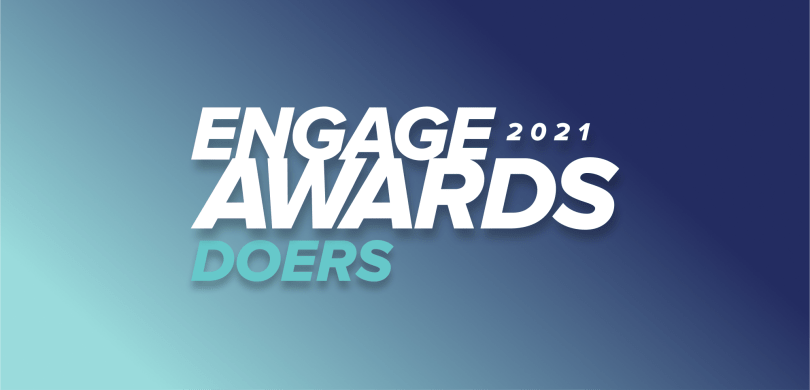
Holocaust Educational Trust
Drupal, Acquia Cloud Platform

The Client
Established in 1988, the Holocaust Educational Trust (HET) is a British charity whose goal is to "educate young people of every background about the Holocaust and the important lessons to be learned for today." HET’s goal is to keep conversations around the Holocaust alive, contemporary and relevant even after the few remaining survivors are gone.
The Situation
HET has traditionally relied on face-to-face interactions and physical spaces for its Lessons from Auschwitz (LFA) course — a course that raises funds to help educate students about the causes of the Holocaust and remind them of the lost lives behind the unimaginable facts and figures. When UK schools and education centers were forced to close their doors from March 2020 onwards due to the COVID-19 pandemic, the charity needed a speedy rethink of this face-to-face approach in order to make its content available for students.
The Challenge
In 2020, the UK market education technology grew by an incredible 71.5% to £3.5 billion. But at the same time, COVID forced UK schools and education centers to close their doors. HET knew that young people couldn’t miss out on learning about the Holocaust, regardless of the pandemic. Charity leaders realized they needed to embark on a digital transformation of its decades-old course.
The Solution
HET turned to digital partner TPXimpact to help support and empower HET’s decision-making in developing a new learning platform — allowing charity staffers to feel confident operating a new system they’d been involved in from the start. Together, the teams decided that Lessons from Auschwitz would be the first of HET’s offline experiences to go digital.
The charity needed the new digital learning platform to be interactive, engaging and accessible but, above all, it had to maintain the human elements of the in-person trips. Without this people-centered approach, charity leaders felt that the content would fail to shine a light on the evocative personal details that bring home the tragedy of this period in history. In addition, HET needed to continually fine-tune its content in line with the changes and restrictions to global movement brought about by the pandemic.
To achieve this, TPXimpact mapped out a new course syllabus and learning management dashboard. They focused on catering to different learning types so that the platform wasn't just responding to changes brought about by the pandemic but was taking the opportunity to respond to broader and ongoing changes, such as emerging methods of learning.
The teams mapped out quizzes, virtual tours, end-of-module recaps and assessments, and interactive live seminars with Holocaust survivors. Balancing self-study with Zoom seminars helped evoke real human emotion, as did a virtual tour of the Auschwitz-Birkenau concentration camp.
HET and TPXimpact designed the digital course to be both accessible and comprehensive. The digitized LFA course takes every student on a journey from pre-war Jewish life to the Holocaust’s relevance in the modern world. A central dashboard makes it easy for students to find and unlock modules in chronological order, allowing each student to be both guided and tracked through the entire course.
While the start of the pandemic was the initial push for this project, HET and TPXimpact felt that revamping the course’s look and feel for its core 16- to 18-year-old audience was long overdue. Together, they chose a look that balanced design and functionality, ensuring that students would find the platform usable regardless of their global location.
To cater to this generation’s preference for digital-first experiences, TPXimpact ensured that the online LFA course was fully accessible via desktop, tablets and mobile devices. The team was mindful of maintaining light page loads during the build, since HET foresaw students accessing the platform on-site once trips resume post-pandemic.
TPXimpact built a separate registration website to manage course sign-ups — ultimately transforming complicated offline processes, such as parent signatures, into a seamless user journey. While accessed separately, the registration site is now integrated into the learning platform via API. A bespoke workflow authenticates school intakes and verifies parental consent signatures. By automating onboarding and improving performance and reliability, charity staff are now free to do more rewarding and human-facing tasks.
Acquia’s proven system performance and reliability reduces the potential of future problems. It also enabled easy installation of multisites, allowing multiple sites to use a single code source combined with multiple databases. This approach allowed HET to have separate sites for the learning tool and registration while retaining a consistent look, feel and usability.
The Results
Even while the pandemic closed physical doors, HET and TPXimpact’s agile teams opened digital doors by making quick, informed decisions. As a result, students can now participate in virtual tours of Auschwitz-Birkenau, which brings a richer audio-visual experience right to their homes. Students can now ask a question to a Holocaust survivor and get a response through video playback. Live seminars with survivors allow students to ask their questions directly, just as they would in-person. Interactive quizzes also trigger instant feedback, which has encouraged students to partake in rapid learning.
This platform has been a huge success for shy, less vocal students, allowing those with questions a safe way to raise their hand in small, breakout Zoom sessions instead of packed seminar halls.
Through a collaborative approach, engaging content, bespoke technology and eye-catching design, HET’s online experience has already delivered greater engagement. The charity currently has more than 900 students enrolled on the platform, with the number steadily growing. The platform has successfully lowered the bar for access to HET learning material, effectively extending HET’s message and reach.
